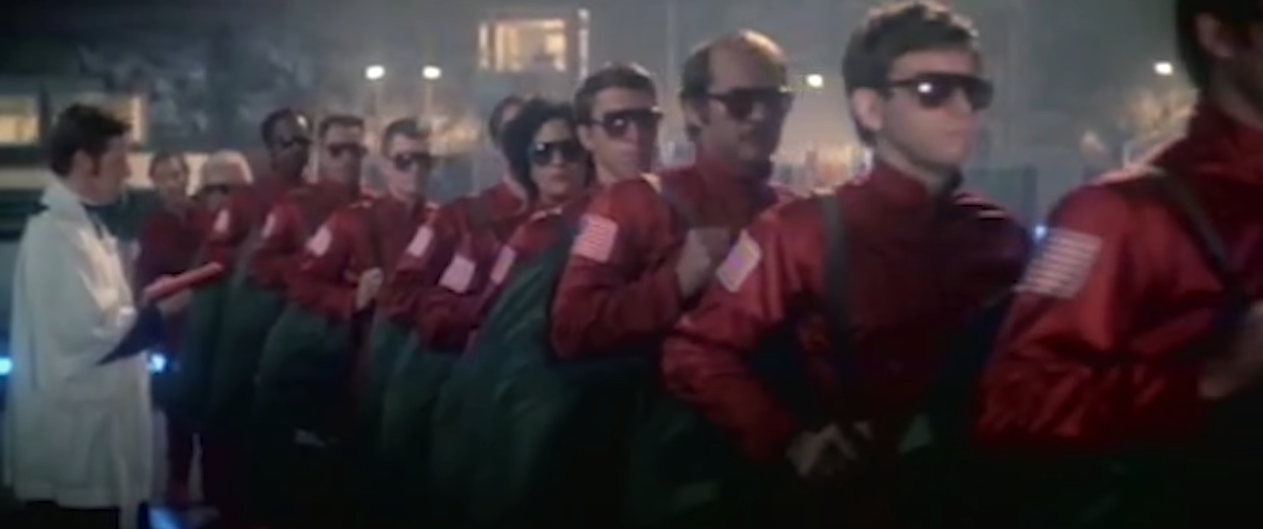The 1970s, a golden age for science fiction cinema, was marked by the birth of many extraordinary films exploring the mystery of extraterrestrial life. This period witnessed filmmakers breaking away from the conventional narratives of the genre, crafting stories that were not only about space but also a reflection of the human condition and society’s major concerns. This article provides a detailed analysis of these iconic alien movies, their themes, societal impact, and enduring legacies.
The Heavy-Hitters: Seminal Alien Movies of the 70s
1. “Close Encounters of the Third Kind” (1977)
This Steven Spielberg masterpiece pushed the boundaries of visual effects in cinema and delved into humanity’s fascination with extraterrestrial life.
- Plot: The story revolves around Roy Neary, an everyday blue-collar worker in Indiana, whose life changes after an encounter with a UFO. Spielberg presents a nuanced narrative of obsession, exploring how the protagonists, drawn by inexplicable forces, strive to understand the truth behind these strange occurrences. The movie climaxes in a magnificent spectacle of light and sound, culminating in a peaceful interaction with extraterrestrials;
- Impact: The film, in its portrayal of aliens, shifted away from the traditional representation of aliens as threatening invaders, painting them as curious, advanced beings seeking communication. The use of music as a universal language in the movie highlights the potential for shared understanding between different species. Spielberg’s film thus had a profound effect on the perception of aliens in pop culture, encouraging a more positive and open-minded approach.
2. “Star Wars” (1977)

George Lucas’s space opera became a global phenomenon that changed the film industry forever, creating a rich universe of characters and mythos.
- Plot: Set in a galaxy “far, far away,” the film tells the story of Luke Skywalker, a farm boy who embarks on an epic journey to rescue Princess Leia from the clutches of the villainous Darth Vader. The film features diverse alien races, interstellar politics, mystical elements, and epic battles, all contributing to a grand narrative that transcends the typical conventions of the genre;
- Impact: “Star Wars” reshaped the landscape of cinema, influencing not only filmmaking techniques but also marketing strategies. Its success led to a boom in the science fiction genre, particularly in films involving extraterrestrial life. Furthermore, Lucas’s film popularized the concept of a richly textured universe filled with various alien species and cultures.
3. “Invasion of the Body Snatchers” (1978)
This Philip Kaufman-directed remake of the 1956 film adds a new layer of psychological horror to the narrative of an extraterrestrial invasion.
- Plot: The story centers around a group of people in San Francisco who discover that humans are being replaced by alien duplicates, identical in appearance but devoid of any human emotion. The film escalates the fear and paranoia as the protagonist’s struggle to save themselves and humanity while grappling with the question of who can be trusted;
- Impact: The film uses the alien invasion as a metaphor to comment on themes such as loss of individuality, conformity, and societal paranoia. The insidious manner of the alien invasion in the movie encapsulates the pervasive fear of the era, creating a sense of foreboding and unease that resonates with viewers.
4. “The Man Who Fell to Earth” (1976)

Nicolas Roeg’s film features rock icon David Bowie as a humanoid alien, merging the worlds of science fiction and social commentary.
- Plot: Bowie plays Thomas Jerome Newton, an alien who lands on Earth with a mission to transport water back to his drought-stricken planet. The narrative is an exploration of his journey as he gets trapped by his human desires and experiences;
- Impact: “The Man Who Fell to Earth” provides a poignant critique of capitalism and human decadence, viewed through the lens of the alien protagonist. Bowie’s performance, combined with the film’s surreal imagery and narrative style, contributed to its cult status. It also laid the groundwork for subsequent films that portrayed extraterrestrials in a sympathetic light.
5. “Solaris” (1972)
This Russian film, directed by the renowned Andrei Tarkovsky, is a deep psychological drama set on a space station orbiting the fictional planet Solaris.
- Plot: As the protagonist, a psychologist, arrives on the space station, he begins to experience strange visions and hallucinations. The sentient ocean of Solaris, in an attempt to communicate, confronts the crew members with manifestations of their subconscious fears and repressed memories;
- Impact: Tarkovsky’s film is less about extraterrestrials and more about human consciousness and the nature of memory and reality. “Solaris” has often been considered as a response to Western science fiction films, presenting a more philosophical and less action-oriented approach.
Symbolism and Commentary: The Themes and Underlying Messages

Technology and Alienation
This theme is often represented through a sense of depersonalization and isolation, which is a direct result of rapid technological advancements. A notable example is seen in the following movies:
| Film | Symbolism | Commentary |
|---|---|---|
| The Man Who Fell to Earth | The protagonist, an alien, uses advanced technology to travel to Earth in search of water for his planet. | The film explores the isolation experienced by the alien, symbolizing how technology can distance us from our own humanity and alienate us from others. |
| Invasion of the Body Snatchers | Aliens replicate human beings, replacing them with emotionless duplicates. | The invasion can be seen as an analogy for how technology takes over human aspects, making us feel disconnected and losing our emotions and identity. |
Paranoia and Fear
The 70s was a period marked by heightened tension and anxiety, largely due to the ongoing Cold War. The cinema of this era strongly reflected these sentiments:
- Invasion of the Body Snatchers: The plot is built on fear and paranoia, where humans are systematically replaced by emotionless alien duplicates. This fear of the ‘other’ and loss of identity resonates with the period’s Cold War anxieties, where there was a constant fear of infiltration and subversion.
Exploration and Discovery
During this period, space exploration was a major global focus, with the Space Race serving as a backdrop for many films. This theme is explored through two notable examples:
- Close Encounters of the Third Kind: The film takes the audience on an awe-inspiring journey of first contact with extraterrestrial life. This not only reflects the curiosity of the era, but also the hopeful, yet trepidatious anticipation of what we might find beyond our own planet;
- Star Wars: This legendary saga delves into an expansive universe filled with diverse civilizations, epic battles, and profound philosophical concepts. It captures the spirit of exploration and discovery, portraying space as a new frontier teeming with potential allies, adversaries, treasures, and dangers.
Conclusion
The 70s was a defining decade for alien movies. The films not only reflected the hopes, fears, and fascinations of the time, but also posed questions and presented ideas that are still relevant today. Whether it’s the epic universe of “Star Wars,” the optimistic communication of “Close Encounters of the Third Kind,” or the existential explorations of “Solaris,” these films have left an indelible impact on cinema and popular culture.
These movies paved the way for future interpretations of extraterrestrial life, influencing the narratives, themes, and aesthetic styles of later films. They expanded the narrative possibilities of the genre, proving that stories about aliens could be vehicles for social commentary, philosophical questions, and human drama. As we continue to ponder our place in the cosmos, these 70s classics serve as a testament to the enduring appeal and potential of alien movies.
FAQ
The 70s was a time of great societal change and technological advancement. The Apollo moon missions had ignited interest in space exploration. This, coupled with societal shifts and anxieties, led to a surge in the popularity of alien-themed movies. The films offered a way for people to explore their hopes, fears, and curiosities about the universe and our place within it.
70s alien movies often served as allegories for contemporary societal issues. For instance, “Invasion of the Body Snatchers” expressed the fear of loss of individuality in the face of increasing conformity, while “The Man Who Fell to Earth” provided a critique of capitalism and consumer culture. Through the prism of science fiction, filmmakers were able to comment on and critique societal trends and norms.
70s alien movies laid the groundwork for many conventions of the science fiction genre, from narrative themes to visual aesthetics. The epic world-building seen in “Star Wars” set a standard for sci-fi and fantasy films. The thought-provoking themes of films like “Solaris” and “Close Encounters of the Third Kind” continue to inspire filmmakers to use science fiction as a medium for exploring philosophical and societal questions.




